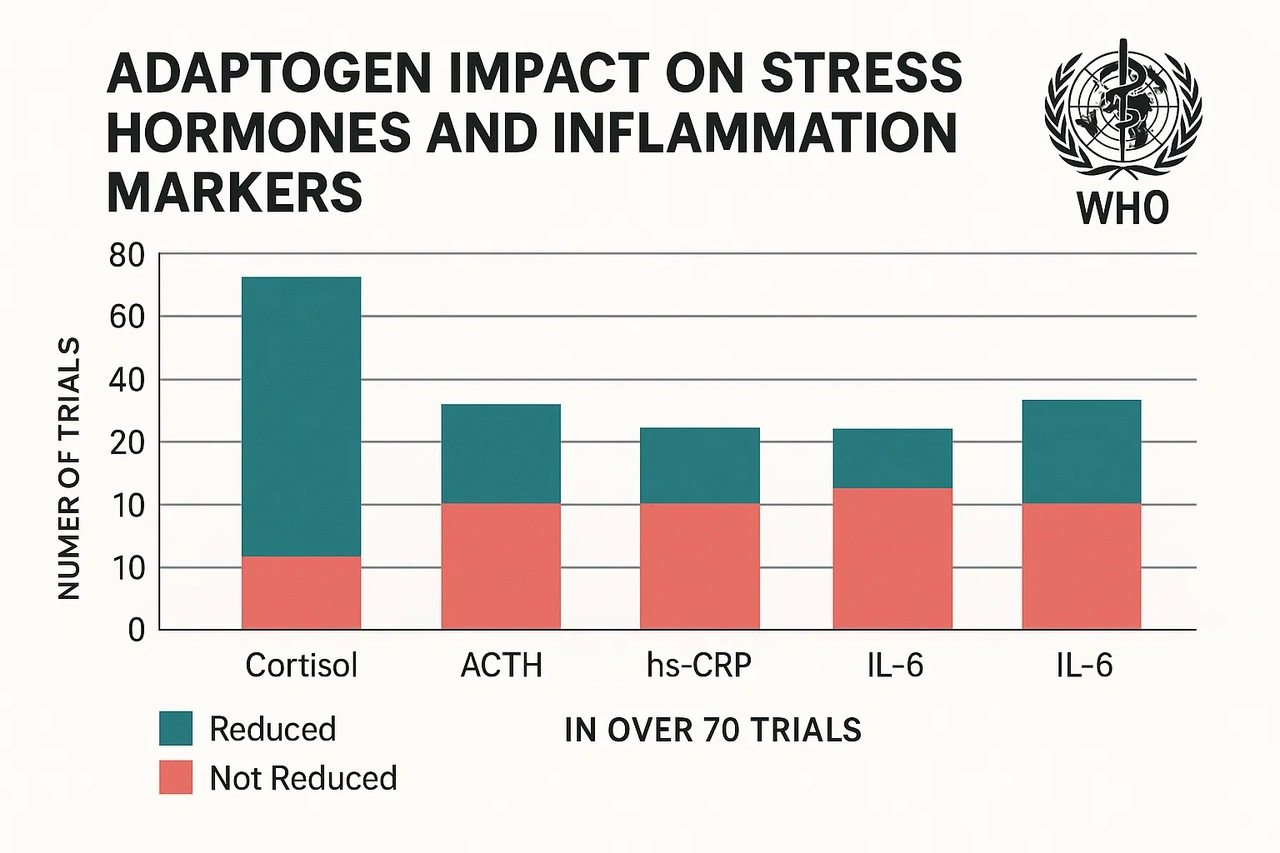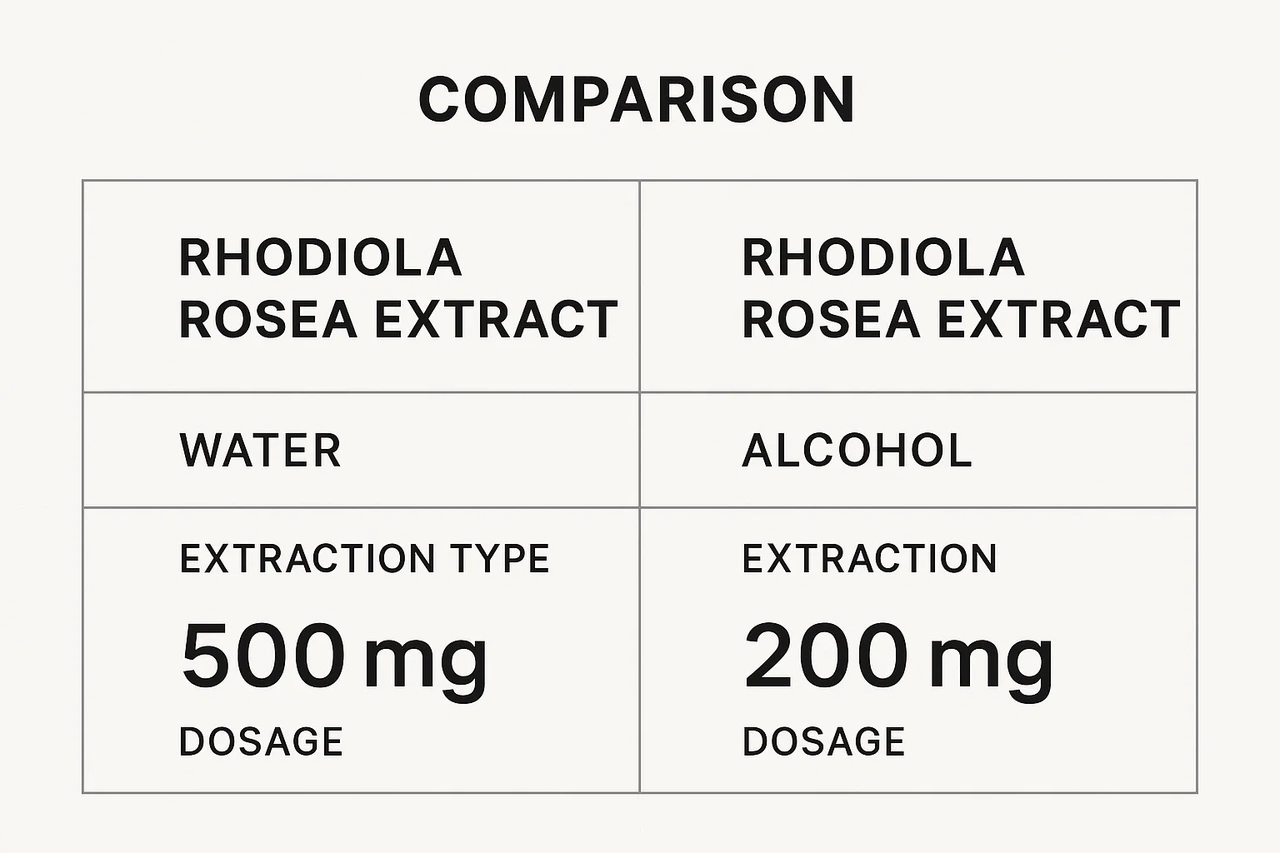Adaptogens in the Spotlight: The 2025 WHO Report That Changed the Supplement Game
For decades, adaptogens lived in the niche corners of health food stores and herbalist circles. They were often described as “ancient plant wisdom” — revered in Ayurveda, Traditional Chinese Medicine, and Siberian healing practices — yet marginalized by Western medicine.
But in April 2025, the World Health Organization (WHO) released a comprehensive report titled "Adaptogenic Botanicals: Integrative Potential in Modern Health Systems."
That might sound like another dry publication — but trust me, it sent shockwaves through the dietary supplement world, and it marks one of the most significant shifts in how natural medicine is being integrated into mainstream care. Let’s break down why this matters, what the report says, and why we, as thoughtful supplement users, should approach this moment with both curiosity and caution.
A Global First: What the WHO Report Actually Did
The WHO’s 2025 report was the first international regulatory document to categorize adaptogens as “functional phytotherapeutics with measurable endocrine and neuroimmune impact.”
Translation? These herbs are no longer being seen as vague stress-busters — they are being acknowledged for their targeted biological effects, especially:
- HPA axis modulation (how our bodies respond to stress)
- Cortisol balance
- Cognitive performance under fatigue
- Immune regulation in chronic low-grade inflammation

The report evaluated 97 clinical trials and found that certain adaptogens — particularly ashwagandha, rhodiola rosea, and eleuthero — had consistent evidence in improving:
- Mental stamina
- Sleep quality
- Resilience under psychological and physiological stress
- Mild forms of anxiety and burnout
This isn’t folklore anymore. This is global health policy acknowledging what wellness cultures have known for centuries — but now with clinical framing and biochemical nuance.
The Wellness Industry Reacts — and Sometimes Overreacts
Naturally, the supplement market didn’t wait a second. Within weeks of the report, major players like Gaia Herbs, Thorne, and Now Foods began repackaging their adaptogen lines with new claims and slicker language. Even pharmaceutical companies are getting involved, with GlaxoSmithKline announcing a research partnership with an Indian biotech firm to develop patented adaptogen blends for regulated therapeutic use. But here’s where things get messy: Not all adaptogen products are created equal.
What the WHO report made clear — but what marketing often skips — is that standardization, dosage, and source matter profoundly. In some trials, 600 mg of full-spectrum ashwagandha extract improved cortisol profiles in 8 weeks. In others, a 150 mg capsule of an inferior extract did… nothing.

As always, hype outpaces nuance. And as consumers, we risk mistaking trend-driven enthusiasm for evidence-based choices.
My Own Journey With Adaptogens (and Why I Came Back to Them)
I first tried ashwagandha in 2016 — back when it was still considered “woo adjacent.” I was going through perimenopause, juggling work and caregiving, and sleeping terribly. A friend gave me a tincture, and… I felt a little calmer. But I couldn’t tell if it was the herb or the placebo or just the feeling of doing something.
Over the years, I circled back. This past winter, I tried a new standardized extract of rhodiola, and to my surprise, it actually helped with my brain fog on long writing days. Not a miracle. Not a transformation. But enough to make me believe there’s something real here — if you use it wisely.
That’s what makes the WHO report so meaningful to me. It doesn’t oversell. It says, essentially: adaptogens are not a magic bullet, but they are a real tool — if standardized, contextualized, and not taken blindly.
The Gendered Side of Burnout — and Why Adaptogens Matter Now
Here’s something the report didn’t say, but that I think we need to talk about: the adaptogen moment is deeply gendered.
Most adaptogen users are women. We are more likely to experience chronic low-grade stress, more likely to seek natural solutions, and more often gaslit by conventional medicine when we say “I’m exhausted, but nothing’s wrong.” Adaptogens have become our quiet allies — in the form of herbal teas, tinctures, capsules, and trendy powdered blends in matte pink packaging.

Close